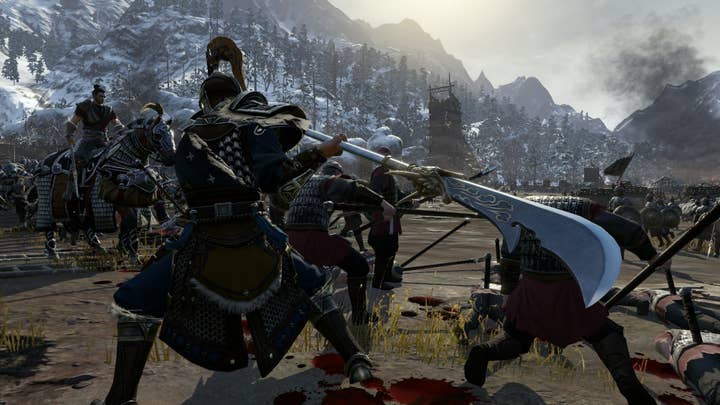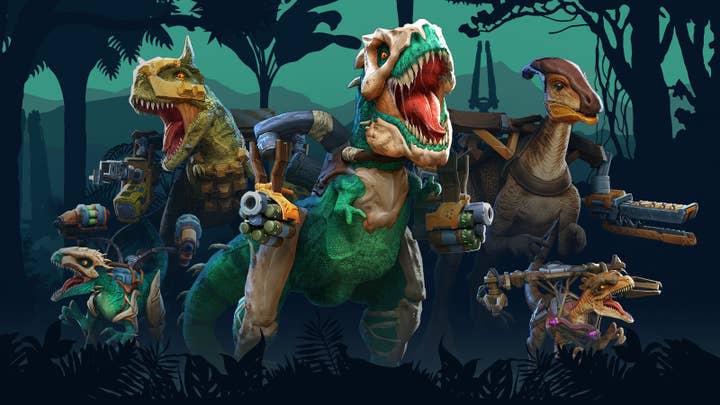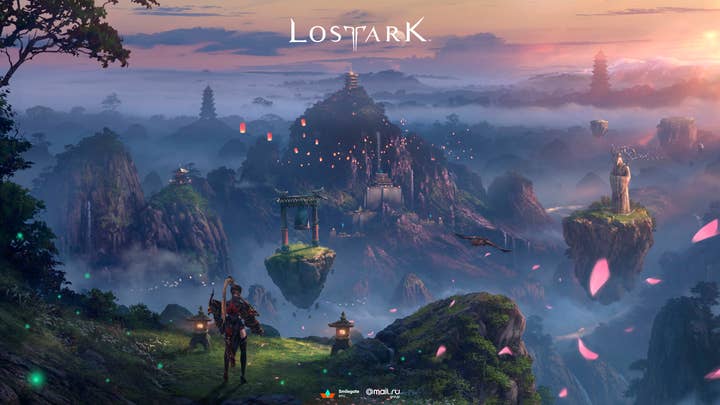Don't believe the hype: a basic guide to engaging with your players
My.Games' Alexey Izotov explores the balancing act of generating hype for the GamesIndustry.biz Academy
Whether you're a publishing powerhouse or a young indie, there's no denying that fans can make or break a new release. The goal of marketing is always to create buzz, but in our world of instant fan feedback, generating hype is also a dangerous balancing act. Promise too much and face the backlash, or promise too little and see your labour of love end up on a marketplace flash sale.
We've all seen it play out online. For every success story like Call of Duty: Warzone, there are countless examples of games crashing and burning.
Generating hype is a dangerous balancing act
How do you prevent your new title going from a hero to a villain in the eyes of your fans? By communicating with your players. At My.Games, we see talking to our players as one of the key pillars of our company. Having a plan in place to communicate with your fans, from development to launch, is the best way to avoid a potential disaster.
The games industry, and the world, is living in hard times. As demand for our games goes up, so does the amount of attention we get from fans. Now is the best time to capitalise on your potential, to talk to your audience and build a strong community.

Global Marketing 101
Let's start with the basics. You will no doubt be familiar with the simple things, like knowing your territories, their time zones, and what social media they use. How are these markets similar, and how are they different? Who are your players, and what gets them excited? It sounds obvious, but perfecting the basics will make the work much easier to manage once you announce your game.
The golden rule is to never promise anything you cannot deliver, something we've all seen examples of. A studio reveals its new game, showing what eventually will be possible, but presenting as if everything would be available at launch. The resulting launch is underwhelming and the studio goes into damage limitation mode, sometimes with long-lasting reputational damage.
The golden rule is to never promise anything you cannot deliver
We kept this rule when we assisted one of our studios, Booming Games, with its MMO Conqueror's Blade.
We purchased the rights to this game just prior to its launch in China. Although we were indirectly involved in the game's development, we were able to give the Booming Games team our first impressions and opinions. Following launch, we received feedback from the community that while the game itself was fun and engaging, the missions could use some tweaks and updates. We listened to the community and developed the global season system.
By offering a realistic idea how Conqueror's Blade would run as a live-service game, we were able to let the community know what will be available with each update. Using their feedback, we have developed the season system to introduce global updates to the game, along with a roadmap of when updates will happen in each region. Using this approach to manage the expectations of the players prevented any negative backlash.

Being transparent
So you've followed step one and announced -- with a realistic expectation of what will be available at launch. Now is the time to engage with your fledgling community of fans on social media. Maintaining transparent and clear communication is the most important part of developing a strong relationship with your community, and preventing any damage caused by hype-culture.
After announcement happens, it can be tempting to share all your hopes and dreams, but like the announcement, this can cause undue pressure if features change further down the road. The dynamic nature of games development means projects are always subject to change, but you can still keep your community involved in your journey. This could be as simple as letting them know the roadmap of development, offering screenshots of new levels or new characters, or even sneak peeks of exclusive gameplay.
This is something we assisted our Pixonic studio with on their latest mobile game Dino Squad. The game started life as an idea from a game jam and is based on a very niche animated series, Dino-Riders, from the 1980s. Pixonic announced the game in late March, and we made sure we outlined the roadmap for launch to let players know exactly what they will be getting.

If you're working on a new project like launching in a new region, a sequel or DLC update, then talking to the community and finding out what they want will make them feel invested in the release.
This is something we have done with our Lost Ark community. The game was released first in Korea and then Russia, a very unique approach to launching an MMO. Typically, games from Asian studios are tested and perfected in the local markets before a full global launch, but we released Lost Ark in Russia before China and Japan.
Maintaining transparent and clear communication is the most important part of developing a strong relationship
However, from the start, we quickly noticed savvy users were managing to play from outside of Korea. We could see Lost Ark was being widely discussed in the MMO community with players aware of details before they could get their hands on it. We needed to be transparent and so engaged in dialogue with the users through livestreams and studio visits for the most active members of the community. We showed them the roadmap from pre-release and launch, all the way up to several months post-launch.
To this day, Lost Ark players always know what's going to happen with the game six months in advance. We still manage to surprise them with some announcements, but that doesn't happen often. Sharing the roadmaps of where we are with the community and having them feedback, helps to keep them engaged.
Remember, if something goes wrong, don't go totally dark. A good community manager will help you decide what fans need to know, and what they don't. But in a difficult situation, make sure you think before you speak.

Breaking the rules
Learning these fundamental rules is important, because it means you know when to break them. Breaking the rules can be risky, but we have looked at market strategies and know that, when implemented correctly, it works. As long as you plan and know your audience, it can reap great rewards.
The classic example of this, and one which we've used successfully at My.Games, is surprise launches. Surprise launches give your game the chance to be a genre disruptor. Instead of spending months building a community and building expectations, releasing a fully formed product onto the market will attract an audience through sheer curiosity. If you're able to employ the support of some influencers that's even better, as their legions of fans will naturally want to try out the game too.
Surprise launches give your game the chance to be a genre disruptor
At My.Games, we had recent success ourselves using this strategy with our massively popular franchise Warface on Nintendo Switch. In February, we launched Warface completely unannounced while making the game available for all players even if they do not have a Switch Online subscription. We noticed that there was a gap in the market, with no CryEngine-powered games on the Switch or any games with Warface's style of gameplay. We saw our chance to break the rules with a surprise launch and make an impact.
he response from the Warface community was amazing. One month after launch, Warface reached one million registered players on the platform, quickly tallying a combined playtime total of 83,000 days.
Once the launch happened, we went back to our favourite approach: transparency. Since launch, we have detailed the roadmap of Warface Switch to all players, including when they can expect new DLC and new maps to play. Experimentation is all well and good, but don't forget the basics.
Be bold, but be smart
By keeping our development plans dynamic, and listening to what our gamers want, we are able to provide a realistic expectation of the game that will be available at launch. Now more than ever, it is important to communicate with your player base to keep them engaged with your product. So in these times of uncertainty, don't forget the four basic rules:
- Perfect the basics
- Do your research
- Know your audience
- Keep dialogue clear and open
Then don't forget the most important rule -- to break them. Educated risks can make the best possible marketing strategies.
Alexey Izotov has been head of global publishing at My.Games since 2015. His department works side by side with such industry leaders as NetEase, Smilegate, Booming Games, and many others. Among its key projects in the CIS are titles like Warface, PUBG, Perfect World, ArcheAge and Lost Ark.